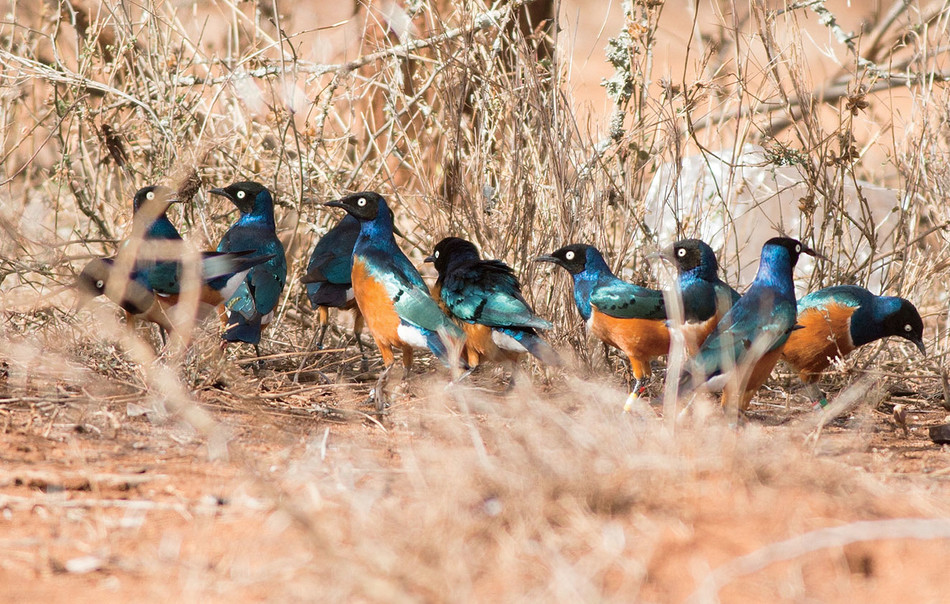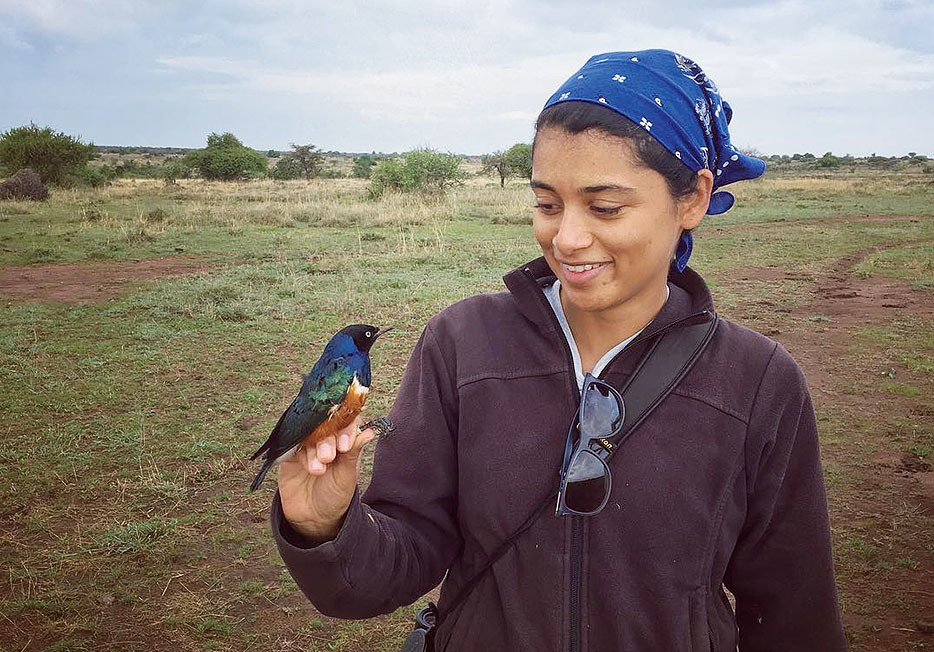For superb starlings — small, brightly colored songbirds found on the East African savanna — life is hard. Snakes, hawks, and other carnivores lurk around their nests, and droughts frequently wipe out their food supply of berries, seeds, and insects. Raising chicks in this environment is particularly difficult, and each breeding season nearly three-quarters of all procreating adults lose their entire clutch to predators or starvation — a dismal result that threatens the survival of many starling populations.
But new research shows that superb starlings have evolved a remarkable strategy to enhance their stability and odds of survival: they welcome into their colonies wandering “immigrant” starlings, who, in exchange for enjoying the safety of an adoptive community and the possibility of finding a mate, help to feed, protect, and nurture other birds’ young.
The study, by Columbia ecologist Dustin Rubenstein and research associate Shailee Shah ’22GSAS, is based on detailed field observations that they and other Columbia researchers have made in Kenya over the past two decades. Previous research by Rubenstein’s team has shown that superb starlings are among the most socially complex of all birds, living in large colonies and practicing “cooperative breeding,” in which all members of a community help to raise new chicks. Roughly 10 percent of avian species are cooperative breeders, but these birds take communal parenting to another level. While many cooperative breeders live in groups of extended relatives, superb starlings routinely welcome nonrelatives in search of better weather, food, and mating opportunities. The influx of newcomers, Rubenstein and his colleagues have found, especially benefits starling colonies in dry years, when their combined efforts as foragers can help to prevent babies from going hungry.
The Columbia researchers, who previously documented the superb starlings’ unusual social organization using DNA analysis, say their new study is the first to provide solid evidence of the evolutionary forces driving the birds’ behavior. Using computer models to analyze their long-term data set, they demonstrated that if starling colonies did not recruit outsiders, they would be susceptible to collapse.
“Theoretical work to date has suggested that these starlings gain a distinct advantage from recruiting birds to their groups, but it’s only now that we can definitively say why they do so,” Shah says. “Without these outsiders, they could not survive.”
This article appears in the Fall 2023 print edition of Columbia Magazine with the title "Lessons in survival from the birds."




